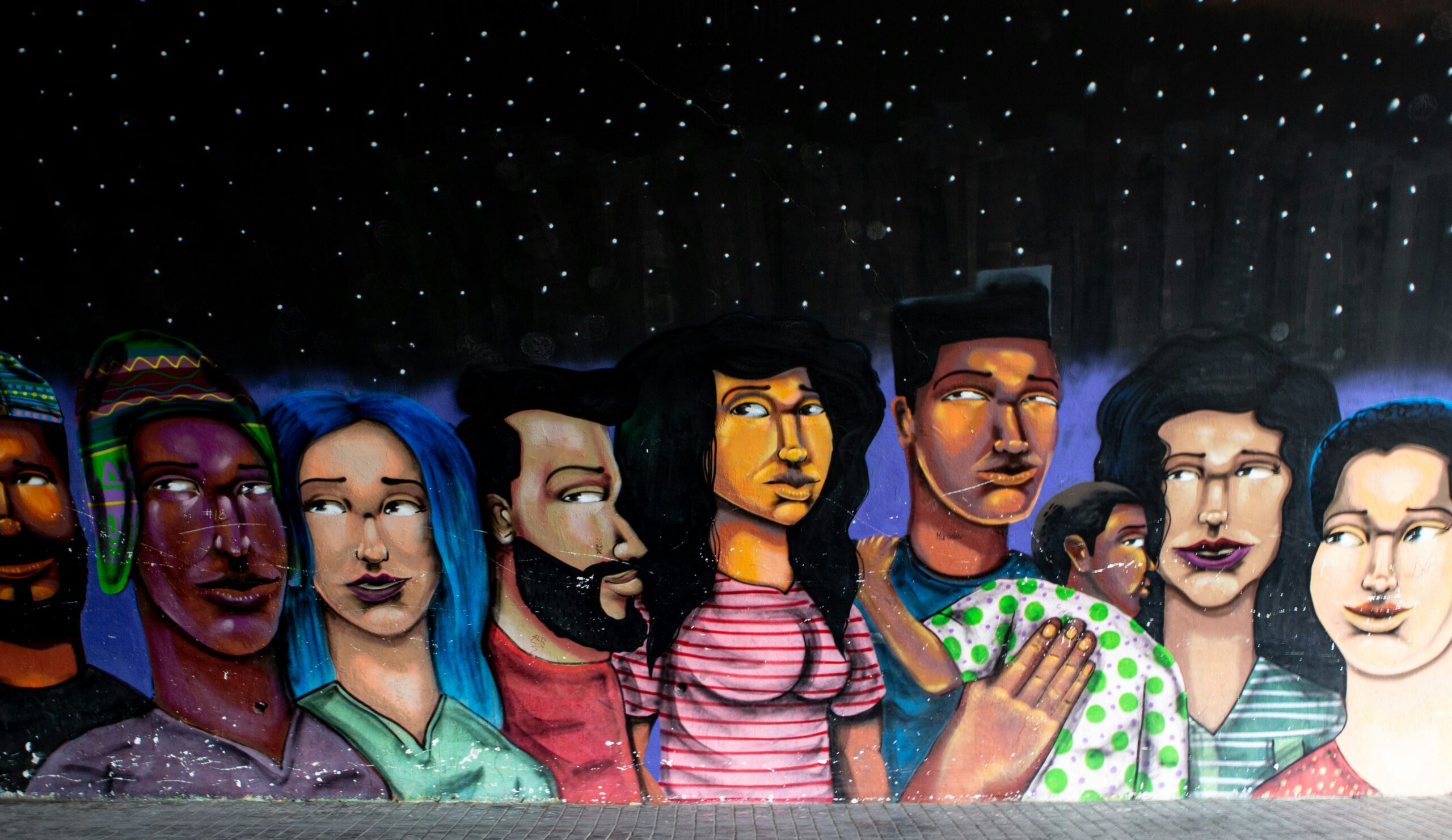As an equity practitioner, clients often send me articles (this is a recent one in a long line) and blog posts that are espousing anti-DEI (diversity, equity and inclusion) views, or rhetoric against wokeness. They ask me, as their inclusion partner, for my feedback to some of the arguments that are made.
When I get a resource like this, my first step is to research the author, focusing on their ability to engage in DEI discussions and their affiliations with communities or platforms. I aim to ensure those discussing an approach have a solid grasp of the theory, history, and context, particularly in understanding systemic oppression and a capacity for power analysis tied to identities.
One of the other things I look for is how diversity, equity and inclusion (DEI) (or equity, diversity and inclusion (EDI), or diversity, equity, inclusion, and belonging (DEIB) — whatever acronym or name you call it), and “wokeness” are defined by the author. Are their definitions correct? Or are they fragility-rooted responses to not liking being asked for accountability?
Two definitions to keep in mind as well, both of which are approaches taken by people undertaking DEI work, and both of which tend to be poorly understood by those who oppose DEI work, are:
Anti-discriminatory practice
Anti-discriminatory practice is an approach that calls for all people to be treated with respect and holds that people should not be treated badly or unfairly because of their race, gender, sexual orientation, impairment, class, religious belief or age. It also champions the implementation of policies that fight against discrimination (see Okitikpi and Aymer, 2012).
Anti-oppressive practice
Anti-oppressive practice recognizes the oppression that exists in our society/space and aims to mitigate the effects of oppression and eventually equalize the power imbalances that exist between people. It also recognizes that all forms of oppression are interconnected in some way, shape or form (see Aqil et al., 2021).
Another question that comes to mind for me is, “What is the author fighting for or defending?”
If DEI is the enemy, then who is the friend here? I try to place myself, for the sake of my own wellbeing and integrity, in a posture where I am fighting for the realization of an inclusive reality where everyone’s dignity, safety, and belonging is respected.
Yes, even dominant culture is who I am fighting for because any liberation for me that doesn’t include you is not really liberation.
After considering those questions, the next item to examine is the author’s argument. There are five common criticisms that I see over and over, all of which are based on a misreading or misunderstanding of the concept of EDI work and/or the nuts and bolts in EDI approaches. I’ve outlined each below, as well as the piece of EDI that is being misunderstood.
- DEI is replacing the good/evil dichotomy with “powerless = good” and “powerful = bad”
One criticism that I’ve heard about DEI is that good and evil is being replaced with a new dichotomy of the powerless being seen as good and the powerful as bad. Power, in and of itself, is neither good nor bad — it just is. Julie Diamond, in her book, Power: A User’s Guide, defines power as: “our capacity to impact and influence the environment.” What’s important to understand about power is the level of awareness we have about the power we each hold, and the intentions with which we use power we have access to — or, what outcomes are we hoping to achieve with the way we are using our power? DEI work is asking us to focus on building our awareness and capacity to analyze power and to create systems and processes that create a more equitable distribution of power so that everyone affected by a system or process has a hand in shaping it.
- Colour blindness is being replaced with race obsession
Colour blindness is typically when people say “I don’t see race or colour — I only see humans.” This act, while seemingly benign, is actually harmful because it invisiblizes the impact of racism and discrimination on individuals because of skin colour. DEI is asking us to consider all aspects of identity and how our identity impacts the degree of privilege we have access to, as well as how much oppression we might be experiencing. It’s about acknowledging the impact of race on life, rather than pretending we don’t see it.
- Cancel culture and public shaming is getting out of control
“Calling in” and “calling out” (public shaming) is also mentioned, and again, this statement has no power analysis in it; every political position has a practice of calling in and calling out, if you dig deep enough. Let’s take some time to define some key concepts before I go further:
Cancel culture
Cancel culture originated as a way for marginalized and disempowered people to address harm and take down powerful abusers, often with the help of social media.
Calling out
Calling out refers to the act of publicly confronting and challenging individuals or institutions for their perceived problematic behaviour, attitudes, or actions. It involves pointing out instances of discrimination, injustice, or harmful practices with the goal of raising awareness, holding accountable, and promoting change.
Calling in
I offer these words from adrienne maree brown and her fabulous work We Will Not Cancel Us: And Other Dreams of Transformative Justice:
In the longest term vision I can see, when we, made of the same miraculous material and temporary limitations as the systems we were born into, inevitably disagree, or cause harm, we will respond not with rejection, exile, or public shaming, but with clear naming of harm; education around intention, impact, and pattern breaking; satisfying apologies and consequences; new agreements and trustworthy boundaries; and lifelong healing resources for all involved.
While I advocate for calling in as an approach, where possible and where resources exist, I also refuse to demonize calling out as a practice because it’s often the only move that those with little or no power have and often comes after other methods of having an injustice or wrong addressed fail.
- DEI is dividing us with all of this emphasis on difference
The criticism here is essentially saying that the focus on DEI is divisive, asserting that it accentuates differences and contributes to a fragmented society. This criticism often calls for the dismantling of DEI initiatives, framing them as facilitators of segregation. However, this perspective overlooks historical and current-day inequities that led to the establishment of DEI frameworks as a mechanism to take accountability for historical harm and to create a society where everyone is valued and can thrive.
Prior to the introduction of DEI principles, prevailing systems perpetuated segregation and discrimination based on race, gender, and other identity markers. DEI emerged as a response to these entrenched inequities, aiming to rectify systemic biases and foster a more inclusive and equitable society.
DEI initiatives seek to counteract this by fostering environments that acknowledge and celebrate the inherent value of all individuals, irrespective of their background. Anti-oppression efforts within DEI frameworks strive to rehumanize marginalized groups, emphasizing the shared humanity that transcends socially constructed divisions, and promoting a more just and equitable society for everyone.
- There’s a perceived trade-off between achieving equity and maintaining meritocracy
Again this is a false binary, trying to suggest that merit is somehow at odds with equitable outcomes. People making this argument seem to think that to have more equitable outcomes means that we are somehow sacrificing excellence, credibility, and qualifications. If you see yourself in this argument and steadfastly continue to double down on it, flip it to test it.
DEI is not about identity over excellence, it’s about recognizing that no single identity has the monopoly of excellence in any field. If roles and opportunities were truly earned by merit, then the diversity that exists in the community would naturally be reflected in every system and hierarchy. An anti-oppression lens argues that equality of opportunity has not been achieved for everyone, and thus, a focus on outcomes is necessary to rectify historical disadvantages.
Statistics from Stats Canada in 2020, which were echoed in TD Canada’s recent report titled Trust and Transformation: Canadian Women in Philanthropy, 2023, share that from a sample set of 6,000 corporations in Canada, 60% of boards are still 100% male. Further, 28% have only one woman on their board, and only 6% of the seats were filled by racialized women. This, in a year where the census tells us that there are 19 million men and 19.23 million women in the country.
Does this mean that women are defective? Or rather, that the system and process of board member recruitment and selection is defective?
Systems of oppression are served by having us believe that it’s because certain people and communities are somehow under-qualified or defective that disproportionate outcomes exist.
Anti-oppression recognizes that it’s the systems, shaped by humans with oppression-rooted agendas, that are defective and need changing.
Conversations about creating spaces where everyone’s dignity, safety, and belonging needs are met deserve so much more nuance than a TikTok or YouTube video or than what an uninformed but well-funded keyboard warrior can offer.
Hopefully this is helpful food for thought as you consider the information that you’re consuming.
Sources:
Aqil, A. R., Malik, M., Jacques, K. A., Lee, K., Parker, L. J., Kennedy, C. E., Mooney, G., and German, D. 2021. Engaging in anti-oppressive public health teaching: Challenges and recommendations. Pedagogy in Health Promotion, 7(4): 344–353. Url: https://doi. org/10.1177/23733799211045407 (accessed Jan. 10, 2024).
brown, a. m. (2020). We Will Not Cancel Us. AK Press.
Okitipki, T., and Aymer, C. 2012. Key concepts in anti-discriminatory social work. SAGE Publications Ltd.
Leena Sharma Seth (she/her) is a settler and award-winning consultant, coach, trainer, and speaker at a firm she founded called Mending the Chasm. She works with businesses, organizations, and communities who are ready to create communities and workplaces that are inclusive, belonging-abundant, and safe for all members. When she’s not kicking at the darkness until it bleeds daylight, she’s enjoying road trips, 80s Bollywood music, and perfecting the art of baking cinnamon buns. She’s proud to call Burlington home and to be raising her children with her partner Sanjay.





